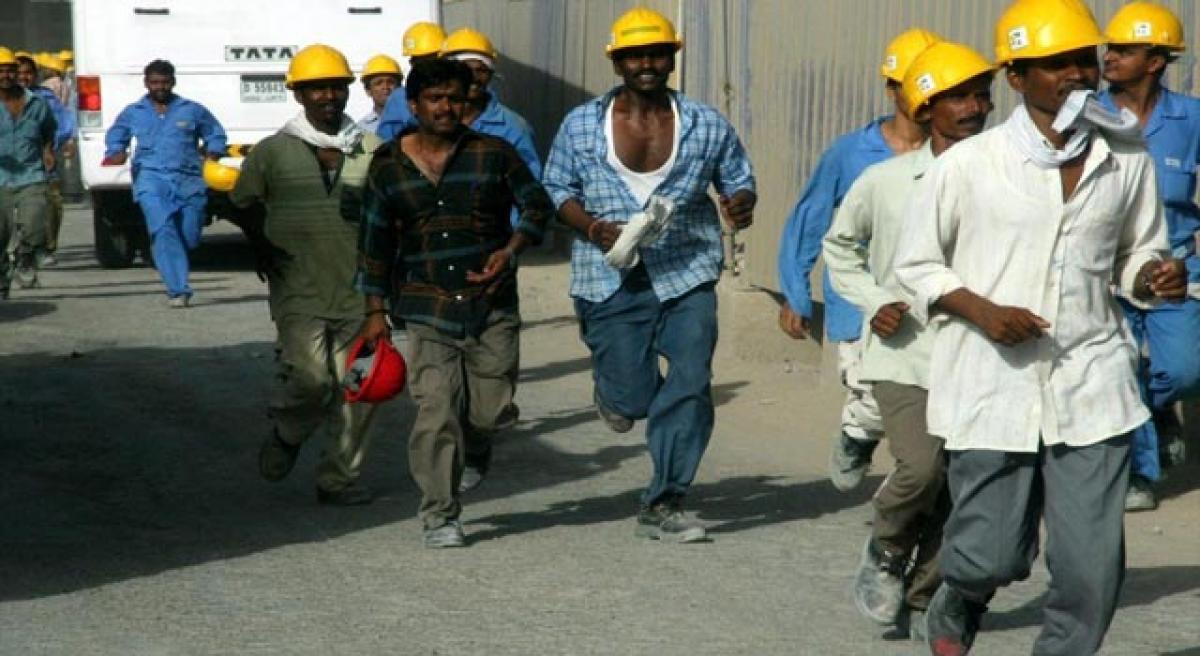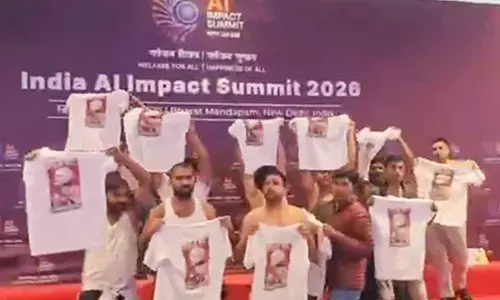Need to protect Indians working abroad

External Affairs Minister Sushma Swaraj’s advice to the stranded Indian workers in Saudi Arabia to return home, offering them free passage at government cost comes as the best and the only way of protecting the lives and liberties of the migrant workers stuck in that country.
External Affairs Minister Sushma Swaraj’s advice to the stranded Indian workers in Saudi Arabia to return home, offering them free passage at government cost comes as the best and the only way of protecting the lives and liberties of the migrant workers stuck in that country. She has stated a bitter truth that there is no point in waiting there indefinitely to collect their salary dues. A rude shock for the working force!
It is an advice in the interest of safety and security of the workers, but is born out of a hopelessly bad employment arrangement. Perhaps, the dues will be paid when a settlement is reached between the Saudi government and the employer companies, but the Indian workers are the sufferers in the meantime. This episode is bound to discourage labour migrations.
The situation is definitely grim, if reports of starvation of some migrant Indian workers due to what is described as “food crisis” are true. The problem is beyond the negotiating capacities of the workers and needs to be rectified by the Government of India. Such reports from the Middle East are common. Another report is about 62 fishermen alleged to have been harassed by their employers in Saudi Arabia but unable to return to India as they are bound by a contract. Recall, reports of workers kept as captives in Iraq rocked the nation last year.
According to the estimates made by the ILO for 2013, there were 232 million international migrants in the world, i.e., persons outside their country of origin for 12 months or more. Migrant workers among them numbered about 150.3 million comprising about 83.7 million men (55.7 percent) and 66.6 million women (44.3 percent). Kerala is for years known for its emigrant population. A village is even nicknamed as “Dubai village,” in which at least one member in every household is in Dubai.
In Tamil Nadu, which has overtaken Kerala, according to a recent survey on migration, it is found that one out of 10 households in the State has a member abroad. The UN Convention on the Protection of Rights of All Migrant Workers and Members of their Families adopted by the General Assembly in 1990 defines migrant worker as “a person who is to be engaged, is engaged, or has been engaged in a remunerated activity in a State of which he or she is not a national”.
The definition is broad covering many people working outside their home country. There are millions of foreign workers in several countries. Under this definition, refugees fleeing from their country for safety and security, displaced persons, victims of war and natural calamities, and illegal entrants to a foreign country are excluded. Migrant workers are those who voluntarily move in search of employment or in response to labour demand of host countries.
Indian migrant workers in the Middle East are mostly skilled, semi-skilled and unskilled labour force seeking employment or betterment of their economic conditions. Globalisation and resulting income inequalities in the home country have been favouring migrations. The status of migrants and the responsibility of the host countries towards them have become important aspects of international relations today.
It is interesting to note that Arab States have the highest proportion of migrant workers as a share of all workers with 35.6 percent. The reason is lack of skilled workers and professionals at home, which make them dependent on other countries to provide competent hands to develop their country. In fact, it is a situation that must give the upper hand to the labour and not the employer. But, the reality is exactly opposite. We are going back in social development under the pressure of globalisation and have to re-assert the equality of employers and employees and their inter-dependence.
In many Gulf countries, including Saudi Arabia, Iraq, and UAE, reports mention prevalence of “kafala system” (sponsorship system) which requires the workers to find a local sponsor and legally binds the worker to the employer. In spite of numerous problems, most countries are encouraging both in-migrants and out-migrants internationally. Both contribute to growth of economy. Since migrant labour plays such an important role in global economy, nations must come together to sort out the issues and formalise arrangements.










